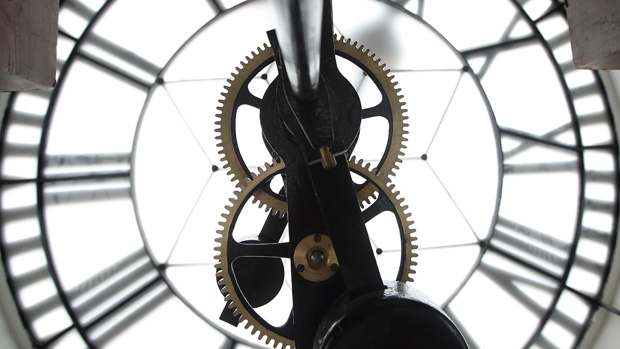'Leap second' added to clocks: will it cause havoc?
Extra second needed this summer to allow atomic time to synchronise with the Earth's rotation

A free daily email with the biggest news stories of the day – and the best features from TheWeek.com
You are now subscribed
Your newsletter sign-up was successful
The summer might feel ever-so-slightly longer this year as a leap second will be added to our clocks today. Clocks will gain the extra second to allow atomic time to synchronise with the Earth's rotation, which is gradually slowing, says the Paris Observatory.
The change might sound small but many companies are preparing for problems:
Why is a leap second needed?
The Week
Escape your echo chamber. Get the facts behind the news, plus analysis from multiple perspectives.

Sign up for The Week's Free Newsletters
From our morning news briefing to a weekly Good News Newsletter, get the best of The Week delivered directly to your inbox.
From our morning news briefing to a weekly Good News Newsletter, get the best of The Week delivered directly to your inbox.
The leap second is needed to synchronise the two systems used to measure time: one based on vibrations of atoms (Coordinated Universal Time or UTC) and one based on the rotation of the Earth (UT1). The average rotation of the Earth was used to gauge time before the atomic clock was established internationally in 1970, providing a much more precise measure.
The Earth counts a day as a tiny bit longer that the atomic clock. The International Earth Rotation and Reference Systems Service (IERS), based in France, monitors the difference between the two time scales and calls for leap seconds to be added to keep them within 0.9 seconds of each other. "We can easily change the time of an atomic clock, but it is not possible to alter the Earth's rotational speed to match the atomic clocks," explains the US Naval Observatory.
Have leap seconds been added before?
Yes, since 1972, 25 leap seconds have been added at intervals varying from six months to seven years. The most recent leap seconds were added on 30 June 2012 and 31 December 2008.
A free daily email with the biggest news stories of the day – and the best features from TheWeek.com
Does this mean the Earth is slowing down that quickly?
There is a misconception that the Earth is slowing down so dramatically that these extra seconds are needed every few years, says astronomer Phil Plait in Discover Magazine. The Earth is slowing, but not that fast. According to Nasa, at the time of the dinosaurs, the planet completed one rotation in about 23 hours. It took exactly 24 hours in the year 1820 and has since increased by about 2.5 milliseconds.
The leap seconds are needed because the Earth rotates at a different, but mostly constant, rate to the time it takes an atomic clock to count 24 hours, says Plait. He describes Earth as a "sloppy time keeper", with tidal effects and other factors changing the rate of its rotation.
When will the leap second be added?
On 30 June, atomic clocks will go from 11.59:59 to 11.59:60 before changing to 00.00:00.
Will it cause any problems?
"The last time we added a leap second in 2012, it wreaked havoc across the internet," says Gizmodo, whose own operating system failed to manage the change. Mozilla, Reddit, Foursquare, Yelp, LinkedIn and StumbleUpon all reported crashes and there were problems with the Linux operating system and programmes written in Java, reports the Daily Telegraph. "Many computing systems use the Network Time Protocol, or NTP, to keep themselves in sync with the world's atomic clocks. But most are not programmed to deal with an unexpected extra second," says the newspaper. When a computer sees the same second twice in a row, it logically thinks something went very wrong, says Gizmodo. "There are fixes to this," it adds, "but they've obviously not been implemented across the board."
Bloomberg points out that this will be the first time a leap second has been added during trading hours since markets went electronic. The extra second will coincide with several global financial markets opening for trading, including in Asia and Australia. US stock markets are therefore ending some after-hours trading early. Others will "smear" the leap second before or after the market opens, spreading the extra second across a longer period. For example, the Japanese stock exchange will split the extra second into 7,200 parts and spread it over a period of two hours – essentially slowing its clocks – before the market opens to synchronise the exchange without crashing the system. Google is also using the same technique.
The "time warp" also has the potential of "making mischief" with law enforcement, voice and data services, utilities and weapons systems, says Bloomberg. Geoff Chester, public affairs officer for the US Naval Observatory in Washington, predicts that around ten per cent of large-scale computer networks will "encounter hiccups" due to the leap second. "With the leap second, you count 61 seconds in a minute, and that's where the problems lie," Chester said.